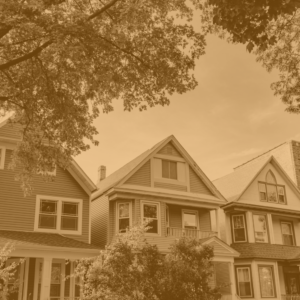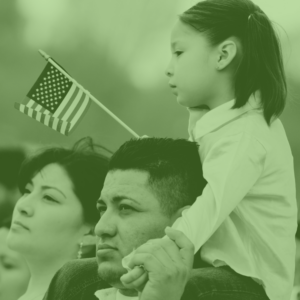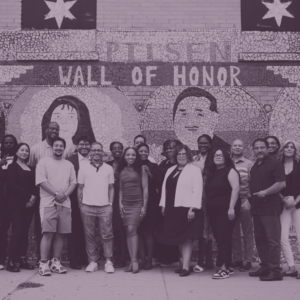By Edwin Ortiz Reyes, Housing Policy Analyst, Latino Policy Forum
In April I had the opportunity to be a part of the Complex Care Regional Convening hosted by Rush University Medical Center. The convening, titled Healthcare and Housing Access for All, brought stakeholders from many different fields to meet and discuss barriers and obstacles in healthcare and housing access for immigrants. Participants were split into groups called “Action Tanks,” which focused on specific topics and worked to build consensus and develop actionable solutions that would remove barriers to resource sharing and access to services for immigrants.
Due to my work on the Housing Rights for Immigrant Tenants handbook published by the Forum in March 2022, I was invited to help facilitate one of these Action Tanks. Action Tank 5 focused on Addressing Housing Insecurity and Access for immigrants and posed the central question, “What are the current barriers to affordable housing and homelessness prevention for undocumented individuals? What resources could be leveraged to address those barriers?” (A full summary and report of the entire two-day convening will be released by Rush in the coming weeks) Over two days, 30 participants grappled with these questions, brainstorming solutions that would remove barriers and make services more available.
During the discussions, the group identified several barriers to services, such as the strict eligibility requirements on federal funds, limited knowledge among healthcare and community service providers of immigrant-friendly services, and a disconnect between services and the communities they are meant to serve. To address these, the group devised several solutions to address these issues through policy and community engagement.
The initial issue of lack of non-federal funding is already being worked on at the city level. There are already efforts to create funding sources that don’t rely on federal funds to address issues of housing access. For example, the Bring Chicago Home Campaign is working to create a dedicated source of revenue to fund affordable housing and homelessness services. If the campaign is successful, Chicago could make an estimated $163 million annually to address homelessness and housing insecurity. In addition, other non-federal funding sources at the state and local level would allow for further expansion of services to underserved communities like immigrants and families living doubled-up or in overcrowded housing.
Even with all services fully funded and open to all, not much will be accomplished if those in need and other providers don’t know where and how to access them. To address lack of knowledge and increase referrals for other providers, such as healthcare providers, to find information on available services and how to connect with them. A centralized list of immigrant-friendly services housed locally with the Chicago Dept. of Housing or state-wide with an agency like the Illinois Housing Development Agency (IHDA) would facilitate information sharing so that providers and the community can access important information on how to access services.
If connecting people in need to the services they need will be successful, there also needs to be trust between those providing the services and the communities they aim to serve. When it comes to serving immigrant communities, this is an often-overlooked factor that can make or break the success of any particular program. Creating deep, long-lasting relationships is crucial to running effective community-based social programs. To do this, a good measure is to give the community an active stake in the program. In the past, we’ve seen success with programs like community health workers (promotoras de salud), which give community members a role in the program and allows them to take ownership of its success. It also makes it so that information is being shared by and in trusted, safe community spaces. If we can engage those who need services or who have previously received them, it gives credibility to the providers. It allows the community to come together to address the issues affecting it.
The ideas outlined here are just a summary of everything that was discussed. The two-day conversation was lively and covered many ideas and potential solutions. As we continue to advocate for housing for all, these are great starting points to ensure that services are accessible to communities that need them and that people in those communities know how and where to connect with them. A report covering the entire 2-day discussion from this Action Tank and four others covering other topics will be released in the coming weeks.




